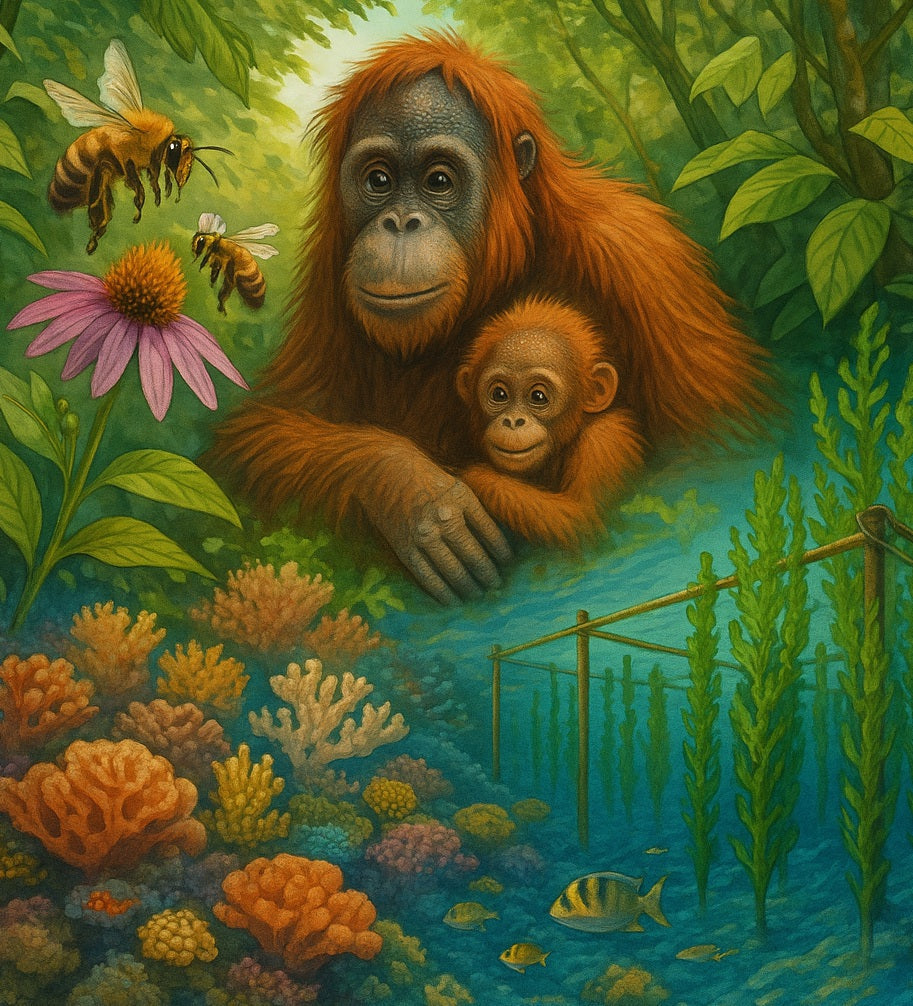So it may be confusing to link bees, orangutans, sharks and corals reef biodiversity to seaweed farming - but that is how earths systems work if we use it well. Habitat conversion, pesticide use, and monocultures have driven biodiversity to crisis levels. Globally, 1 million species are at risk of extinction due to agricultural expansion alone. Pollinators like bees are declining by 30–40% in many regions, and marine hotspots—from the Great Barrier Reef to the Gulf of Mexico—are stifled by runoff-driven hypoxia and chemical pollution.
How Our Seaweed Cultivation Restores Biodiversity on multiple fronts:
-
Reduced Agrochemical Reliance: Our Seaweed farms require zero pesticides, fungicides, or herbicides. By cultivating seaweed in rapid batches of recoverable and well monitoried systems, we can create seaweed cultures that thrive and get replaced within a day of an undesireable species turns up. We don't have to poison anything, and herbicides and pesticides are one of the key impacts on biodiversity from agriculture, including bees.
-
Habitat Protection: Becuase seaweed roduction saves land for food prodciton, the pressure on land to produce less sustainable crops will improve for every bit of seaweed that we can add into our diest - orangutan forests included. And becuase seaweed production protects coral reefs from fertilisation and oxygen depletion, coral reef biodiversity is protected too.
-
Alternatives to Wildlife Harvest: Many supplements rely on products extracted from wild species—e.g., shark-derived chondroitin. By producing SXRG84 (PhyChondrin™) and PhyA® (Phyaluronic®) in our seaweed bioreactors, we remove demand for animal production and the culling of threatened sharks, safeguarding apex predators and preserving food webs.
Through a simple opportunistic swing towards seaweed production and harnessing wasted resources, we can support and reverse impacts in more ways than one without even trying. Our crop to market systems counteracts monocultures on land and destructive fisheries at sea. By returning nutrients through productive, seaweed aquaculture, we help re-establish the connections that maintain healthy, resilient ecosystems—both terrestrial and marine.

1 comment
Was prescribed shark fin supplements for a mental health issue and wouldn’t go there because of the slaughter of sharks but now can get the necessary elements from seaweed in your foods and supplements. I’m really happy about this !!!! Not going off medication but adding to the health of my mind and body as a whole without damaging another species or our planet